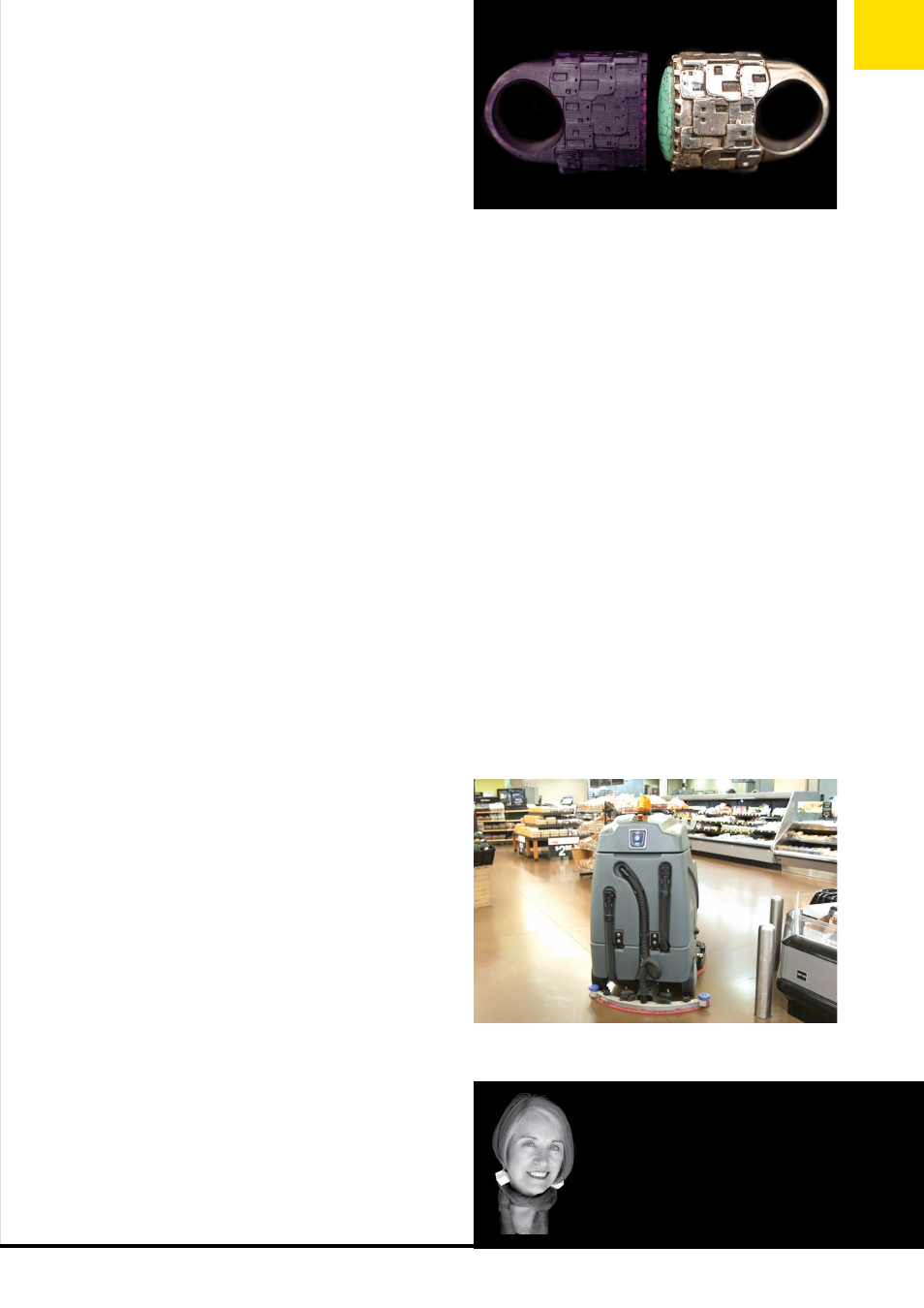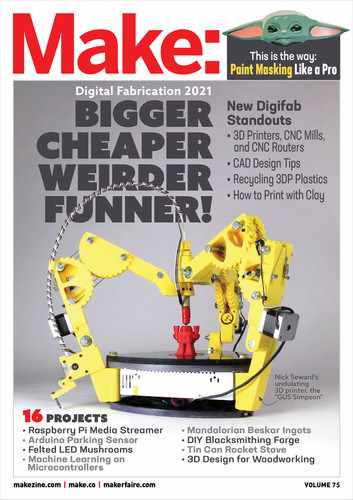
I
n the early years of the maker movement, who
would have predicted that digital fabrication
tools could become as affordable and user-
friendly as they are today? No longer needing
specialists to keep them running, fabrication
machines are accepted by mainstream users
as tools in their daily lives. CNC routers,
laser cutters, digital sewing machines, vinyl
cutters, and 3D printers are now found beyond
makerspaces and garages, in classrooms,
libraries, museums, and startup accelerators.
The resulting democratization of digital
fabrication has had an especially powerful
impact on entrepreneurs. Suddenly barriers to
market entry were drastically lowered and new
companies sprang up, offering everything from
3D-printed jewelry to laser-engraved advertising
specialties, and drones made from laser-cut
parts to CNC-machined home furnishings.
Coronavirus accelerated the number of makers
who saw opportunity in a local supply chain and
there are many stories of high-volume PPE
production led by maker-entrepreneurs.
But being a successful entrepreneur is not an
easy path and is certainly not the career of choice
for everyone. After all, an average of only 20% of
U.S. new businesses will still be around beyond
the 5-year mark. So, what does digital fabrication
hold in store for makers who want an engaging,
well-paying career path but don’t want to run
their own business?
Digital Transformation Across Industries
Just as digital tools have become mainstream in
fields such as education, these new technologies
are disrupting a range of industries. For the last
two years, I have been researching technology’s
impact on jobs for the Future Workforce Now
project led by the National Governors Association,
The Fab Foundation, and the international
human-development non-profit FHI360. We
found that in a short period of time, industries
from agriculture to warehousing have undergone
digital changes that offer big opportunities for
anyone with digital fabrication skills.
Making is no longer the purview of
manufacturing alone. One of the most eye-
opening comments during the Future Workforce
Now project’s roundtables came from Walmart:
SARAH BOISVERT is the founder
of Fab Lab Hub and a co-founder of
the New Collar Network, a non-profit
issuing digital badges for “New Collar
Job” skills. She is the author of
The New Collar Workforce and People
of the New Collar Workforce.
Ring designed by Mayte Cardenas in CAD, fabricated on
a FormLabs SLA 3D printer by Fab Lab Hub, then cast in
sterling by Superior Casting.
Walmart’s robot janitors will need human builders and
technicians with highly technical fabrication skills.
“Now that we have janitorial robots, we have two
concerns. One is what do we do with all of our
frontline workers? The other is who is going to
program, monitor, and repair the robots?”
The answer lies within the maker movement.
Young digital natives are already using the tools
that build and repair robots, and have hands-on
experience gained in First Robotics competitions
and the like. Walmart confirms that automation is
happening all around us and the shift from “blue-
collar” to what IBM’s Ginny Rometty calls “new-
collar” jobs is urgent. While we are waiting for
the kids to grow up, employers and governments
must invest in upskilling today’s workers and
welcoming adults with non-traditional digital
fabrication training.
Bio-printing is often in healthcare news. But
other 21st-century technologies are routinely
being used in diagnostic labs and operating
rooms. Quick, inexpensive tests using “Lab
25
makeprojects.com
Adobe Stock-lembergvector, TiraHowardPhotography.com, Walmart
M75_024-7_SS_Opener_F1.indd 25M75_024-7_SS_Opener_F1.indd 25 10/11/20 12:26 PM10/11/20 12:26 PM
..................Content has been hidden....................
You can't read the all page of ebook, please click here login for view all page.
